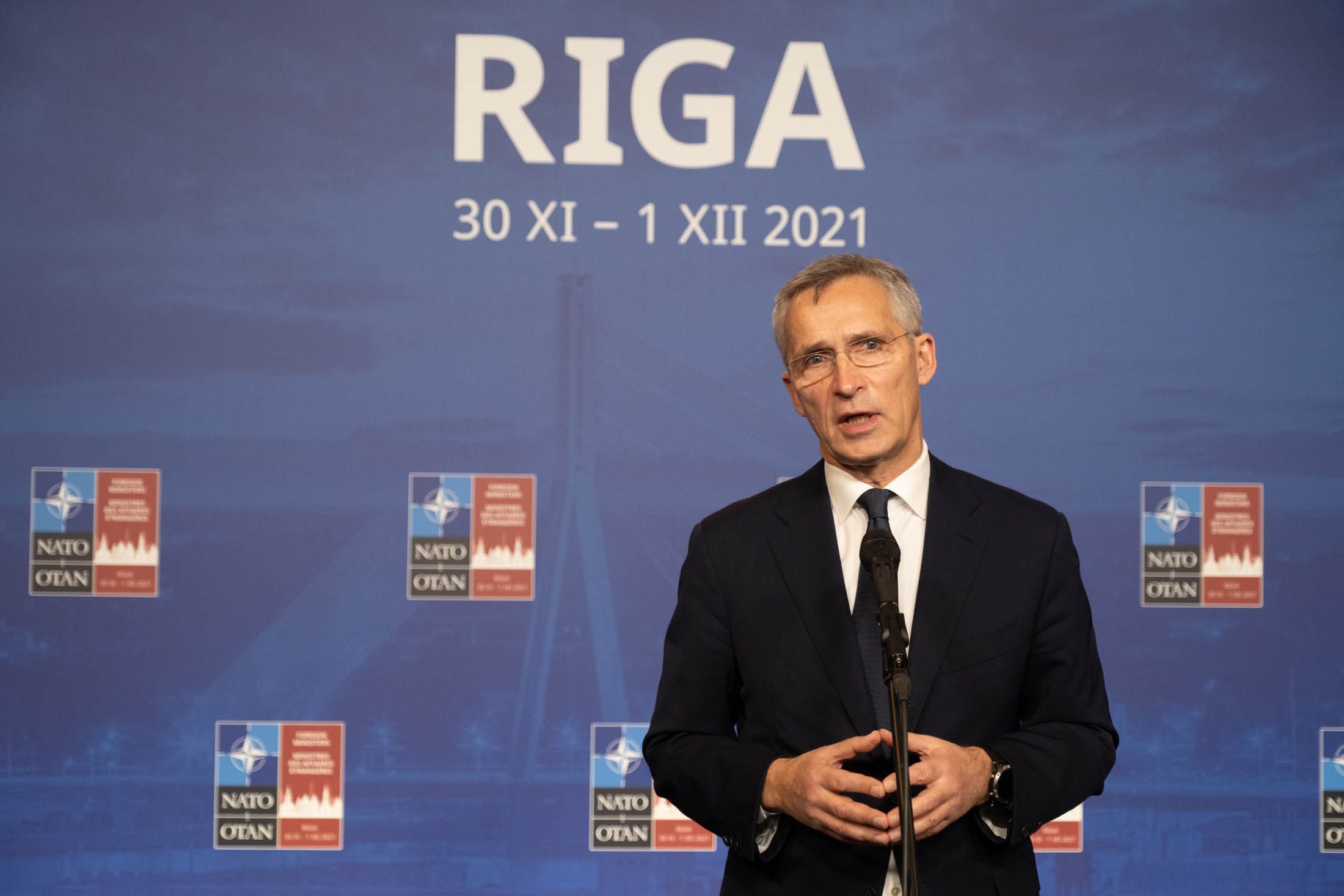
Amid mounting tensions between Russia and Ukraine, and with both countries increasing their military presence on their borders, NATO Secretary General Jens Stoltenberg issued a stern warning. Russia would pay a “high price” should it invade Ukraine, he said.
Since Ukraine is only a partner, and not a NATO member, the military alliance is under no obligation to guarantee security, he clarified. However, should the Kremlin act as the aggressor, sanctions would be imposed. These would likely be limited to economic sanctions and additional defensive deployments to NATO’s eastern flank, he specified, further adding that, “we have demonstrated our ability to impose costs, economic, political actions. And also, over the years, increased our military presence in this region.” The comments were made at a meeting of NATO foreign ministers in Latvia.
The potential for conflict has been of grave concern to the region for some time. Pressure has been exacerbated by the Russian pipeline, Nord Stream 2, which is intended to circumvent Ukrainian transit infrastructure and deliver Russian gas directly to Germany. NATO already has battalions stationed in the Baltic Sea and Black Sea regions, amounting to 40,000 rapid reaction forces in the event of war. The situation has surrounding countries on edge. Precautions have already been taken by Latvia, which called for U.S. troops and Patriot missile batteries to be permanently stationed on its territory due to the increasingly tense climate.
Russian President Vladimir Putin warned that NATO deploying its troops and weapons to Ukraine was a “red line” and would trigger a response, the Associated Press reports. Referring to the flight-time of a newly developed, successfully tested Russian hypersonic missile, Putin said “It would also need just five minutes to reach those who issue orders.”
That same day, the Belarusian President, Alexander Lukashenko, said that Crimea, which Russia annexed from Ukraine in 2014, was both ‘de facto’ and ‘de jure’ Russian territory. His recognition of the annexation has regional players worried.
Last weekend, Lukashenko also said he would fight on Russia’s side in any war with Ukraine and announced new military drills on Ukraine’s border.
Poland also looks warily at Russia, which it suspects will shortly be building new military bases on the Belarus-EU border as part of the two countries’ secret, joint ‘military doctrine.’ “The Kremlin and its allies want to change the political system and destabilise the region,” Poland’s Prime Minister Mateusz Morawiecki told the BBC on Tuesday. Along with other EU leaders, he also accused Belarus of orchestrating a migrant crisis on its border with Poland. “We have to wake up from our geopolitical nap.”
